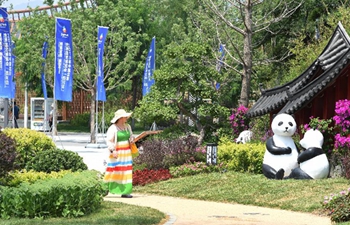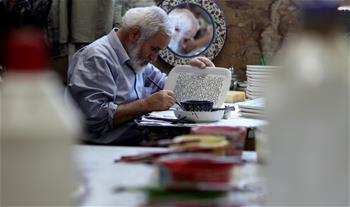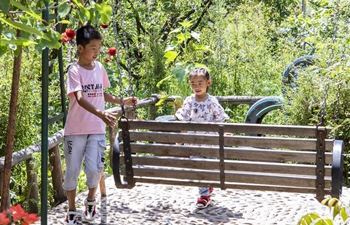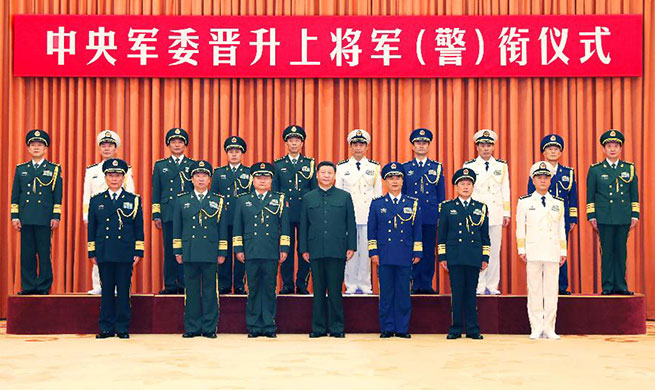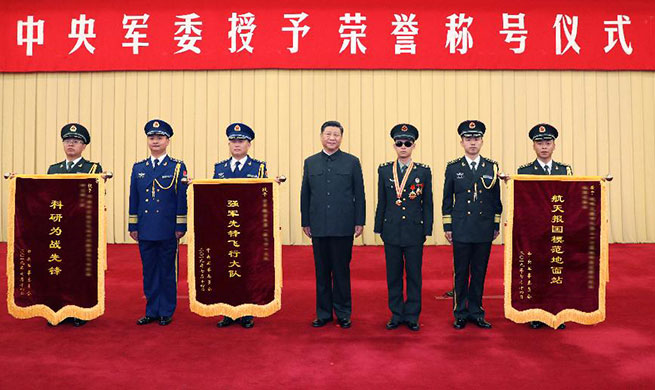NANNING, Aug. 1 (Xinhua) -- A Phoenix bicycle, a Shanghai-brand watch, a Butterfly sewing machine and a radio with a long antenna were the "Four Must-Have" betrothal gifts in the 1970s, each coming at a price beyond the budget of ordinary families.
Nowadays, these old objects have faded from view with the changing of the times. The "Four Must-Haves" have retired to museums for people to recall the bygone days.
Today, an exhibition of old items is being held at Guangxi Museum of Nationalities, a cultural museum in south China's Guangxi Zhuang Autonomous Region. Among the exhibits there are items popular in China decades ago including the "Four Must-Haves," stamps, badges, old televisions and photographs.
Since 2011, the museum has been collecting old items from people around the country. So far it has received the donation of thousands of items.
"Riding a bike in the street was a kind of fashion statement at that time because many people couldn't afford it," said He Haiqing, 68, standing before an old bike at the museum.
He said his bike was once a bond of love between himself and his wife. "We were in our 20s. She often borrowed my bike before we started dating. Later on I often carried her with my bike on our dates," he recalled.
Wu Richu, a 60-year-old visitor from Guangdong, said that his family could barely make ends meet back in the 1970s. "We could only eat meat once in a year on the eve of the Spring Festival," said Wu.
Chinese people had their wallets swollen during the 1980s and the 1990s, and the original "Four Must-Haves" were replaced by TV sets, refrigerators, washing machines and tape recorders, thanks to the drastic changes brought about by the reform and opening-up which have been in place since 1978.
Today, with people's ever-growing needs for a better life along with the rapid economic and technological growth, decent housing, private cars, personal computers and smartphones have became part of everyday life.
"I used to buy clothes with cloth stamps and make clothes with a sewing machine by myself. Now, there are many clothes with different styles in the shopping mall and sometimes I even buy clothes online," said Li Xiumei in her sixties.
Li took Zheng Jia, her 10-year-old grandson, to the exhibition. "I hope he can understand more about life in the past and cherish what he has today," said Li.
"About 3,000 to 4,000 people visit the museum every day. Many come here to recall their old memories," said museum staff Li Ya, adding that the exhibition receives over 1 million visits every year.
"I could feel a sense of attachment as they are the objects we once lived with, and now they have mostly become memories. Our life is changing with each passing day," sighed Wu Richu, 60, as he looked at the food stamps on exhibition.
He Haiqing has collected more than 50 bikes from the UK and Hungary and donated five of them to the museum. "These bikes may disappear one day so I donated them, hoping that they could be remembered and cherished by the younger generations."




